As it was one of the final dissemination events of the InVID project, and a rather successful one, we portray what happened at ICT 2018 in Vienna in more detail here to give the reader an impression of one of the project’s final dissemination activities.
InVID was represented at ICT 2018 with a stand / booth that was manned over the entire three days of the conference and exhibition. ICT 2018 took place from 4 – 6 December 2018 in the Austrian capital Vienna. Many people stopped by our stand, including – among others – Claire Bury from the EU Commission, Deputy Director General at DG Connect, and Ingolf Schädler, Deputy Director General at the Austrian Ministry of Transport, Innovation and Technology. A photo of the InVID project co-ordinator, Dr. Vasileios Mezaris, talking to a group of high-profile visitors appears on the top of this article (photo taken by Jochen Spangenberg).
Stand visitors were very interested in the issue of false / misleading information in general, and how InVID aids to counter the spread of misinformation. This way, we raised considerable interest among the political sphere, but also among others interested in our solutions (e.g. in particular individuals with a research / academic background as well as business interests.)
In addition to our continuous stand presence in Hall X3, we hosted a networking session on day 2 of the conference (Wednesday, 5 December 2018). The session was organised by CERTH’s Symeon Papadopoulos and featured contributions – in order of appearance – by Vasileios Mezaris (CERTH), Denis Teyssou (AFP), Jochen Spangenberg (Deutsche Welle), Nikos Sarris (Athens Technology Center) and Zlatina Marinova (Ontotext). The topic of the lively presentations and discussions: “Fighting Disinformation through Human, Crowd and Artificial Intelligence.” Presentations dealt with InVID project outcomes, work of the (now completed) EU project REVEAL (one of the EC’s very first projects dealing with verification of digital content – started in 2013 and completed in late 2016. More on https://revealproject.eu/), Truly Media (a collaborative verification platform developed by ATC and Deutsche Welle – more on http://www.truly.media/), and the newly started EU projects WeVerify (also tackling misinformation – started on 1 Dec 2018, more on https://weverify.eu/) and the coordination action SOMA (building and supporting a European Disinformation Observatory – more on http://www.disinfobservatory.org/).
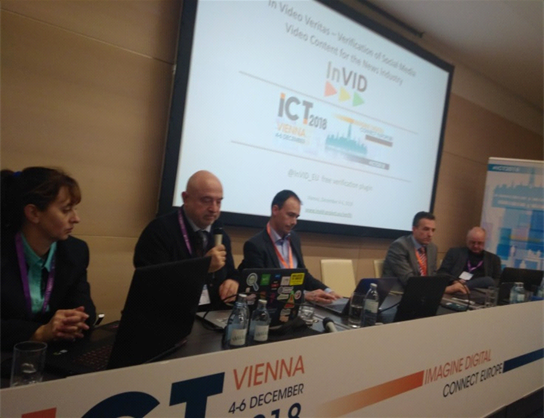
Panel of the InVID networking session at ICT 2018 (Photo by Symeon Papadopoulos)
The InVID team itself reported very actively about its presence and activities. We produced short videos with most project members present, in which they outlined project outcomes, results and achievements, and used Twitter as our primary channel to report about our activities and what was going on.
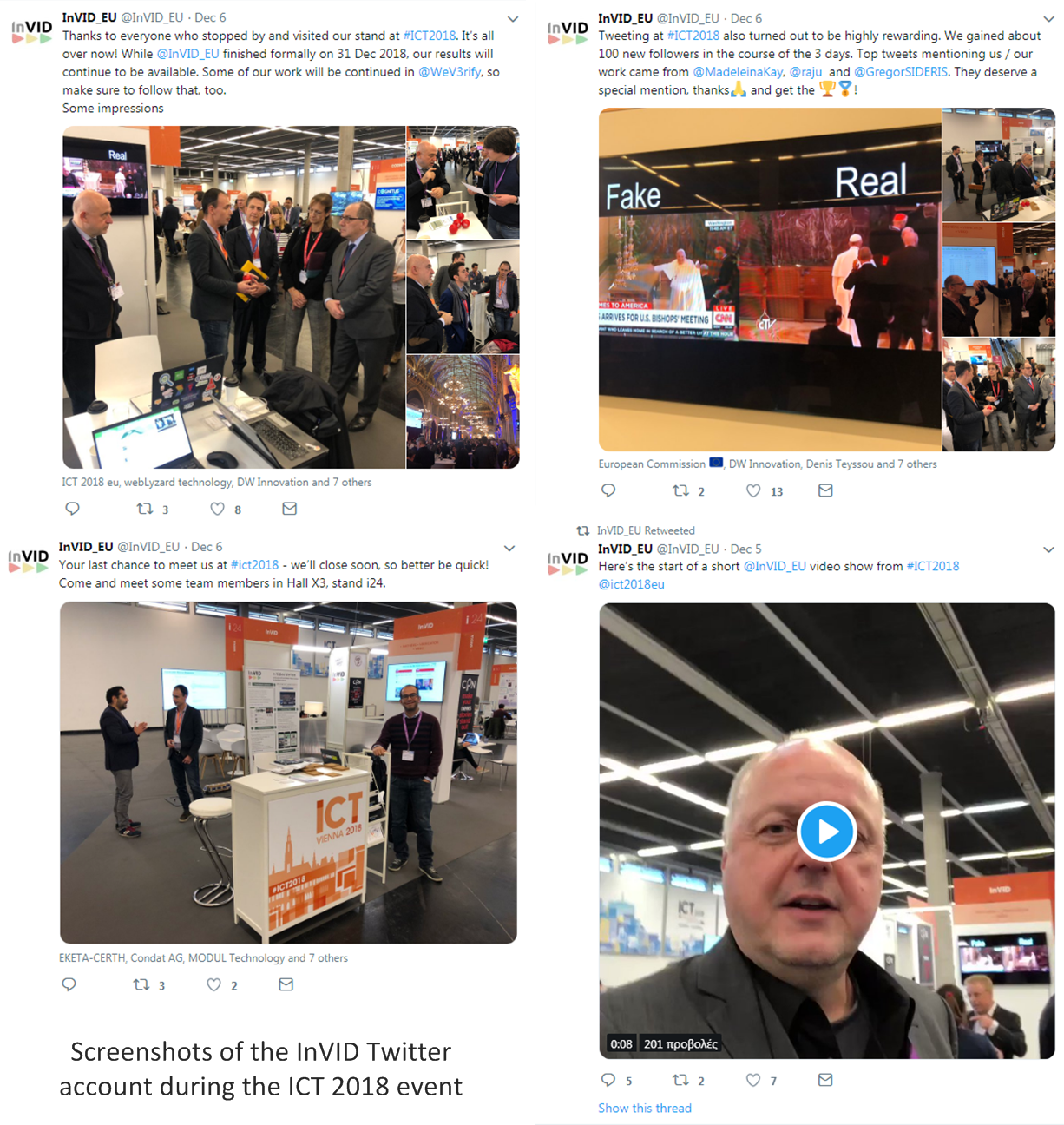
Our own efforts were supported greatly by others reporting and tweeting about us and what we got up to. Below, we provide screenshots of the tweets that gained most attention and interactions.
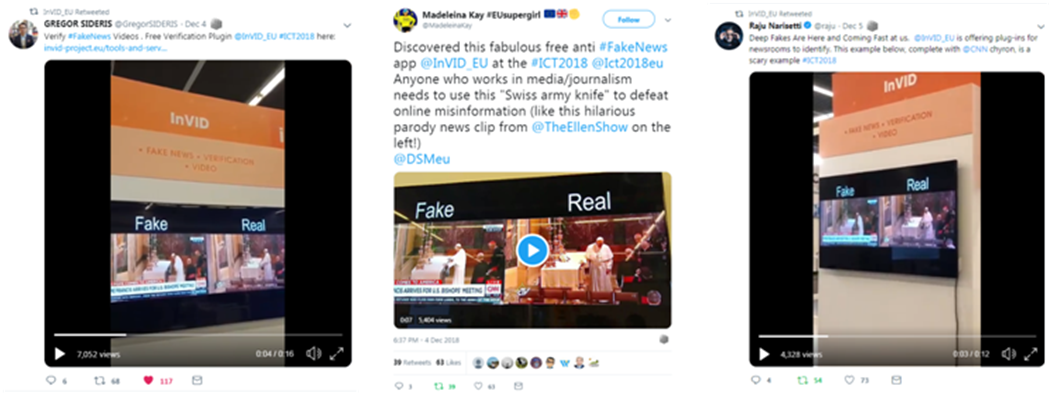
Top tweets by third parties mentioning InVID. Screenshots of respective posts on Twitter
Overall, the consortium is very pleased about its presence at ICT 2018. We can confidently say that it was a big success as
- it contributed further to raising awareness on various aspects of the misinformation ecosystem, including our work and efforts;
- we reached numerous new people and showcased what we got up to and provide to the factchecking / verification community;
- in the course of ICT 2018 our verification plug-in surpassed the number of 8,000 users;
- we gained about 120 new Twitter followers within a week, most of them in the course of the conference;
- feedback obtained was highly positive and came from a great variety of stakeholders and interested parties.
Summing up, the InVID presence at ICT 2018 in Vienna can be called a high profile event with considerable impact. In order not to praise ourselves too much here, we let others have the final word, and conclude with a tweet from @EU_Media_Lit, the official EU account on disinformation and media literacy policy in the EU Commission.
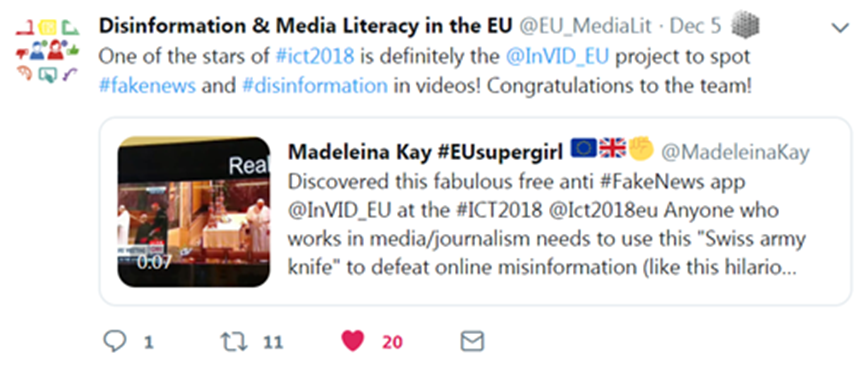
Tweet by @EU_MediaLit of 5 Dec 2018
Author: Jochen Spangenberg
Editor: Evlampios Apostolidis
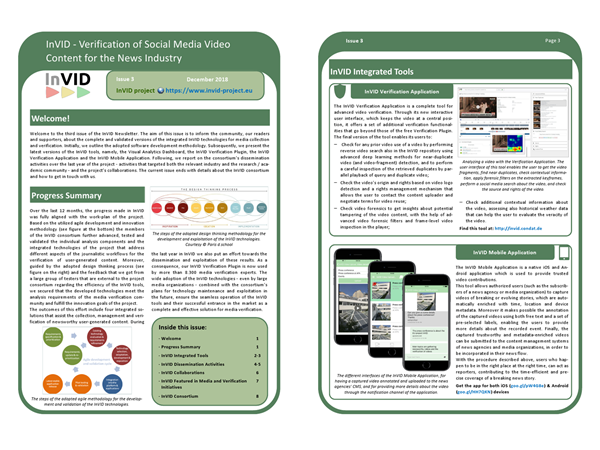

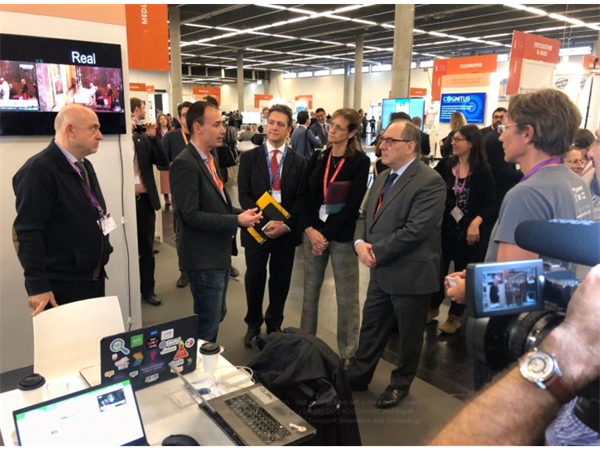




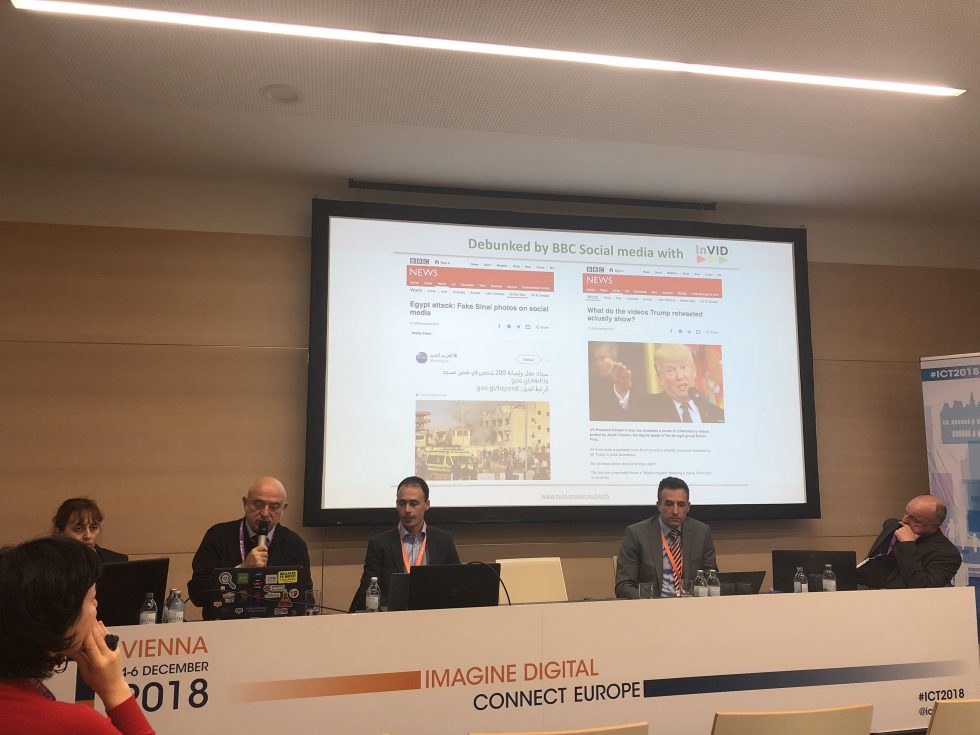
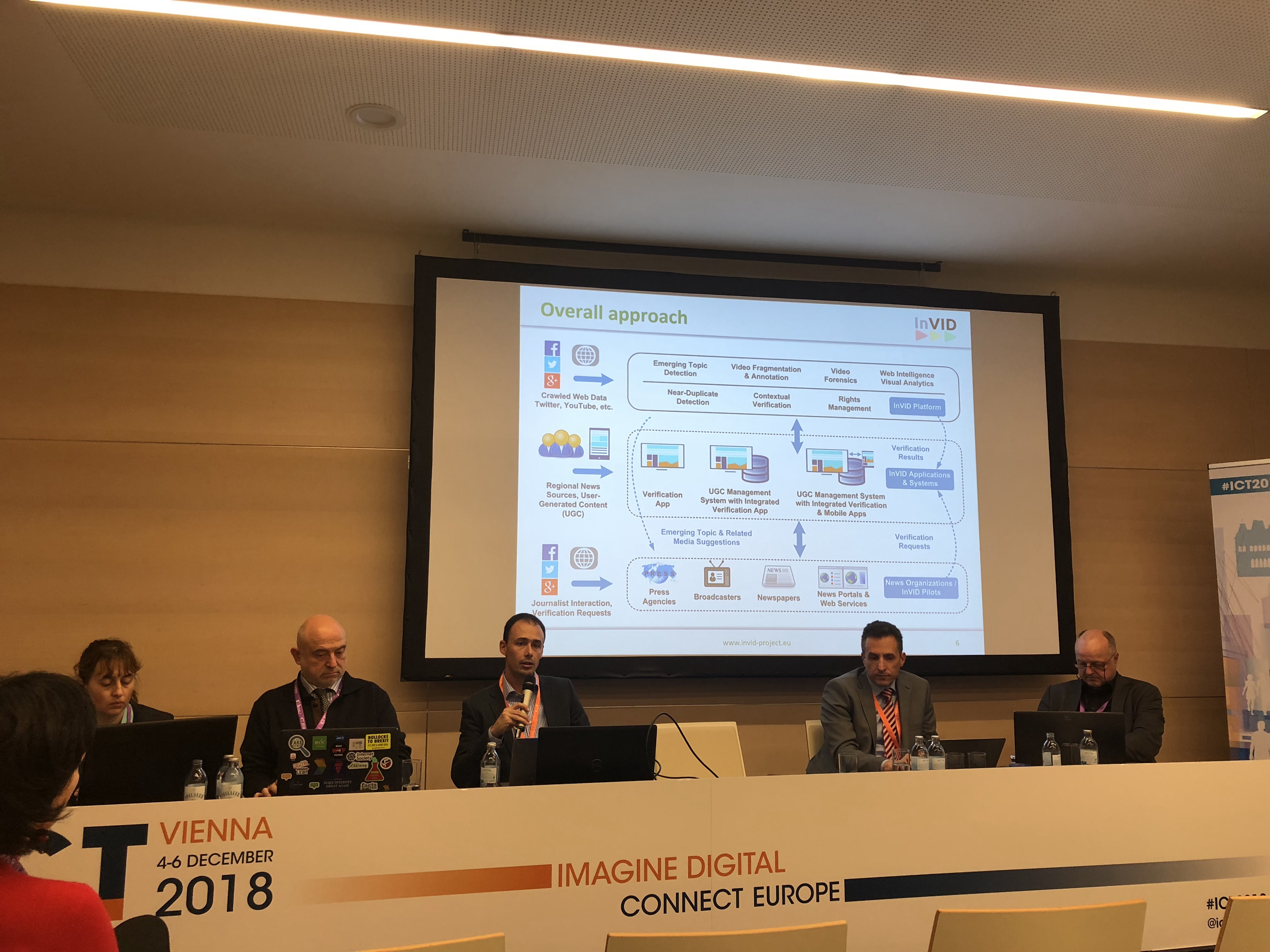
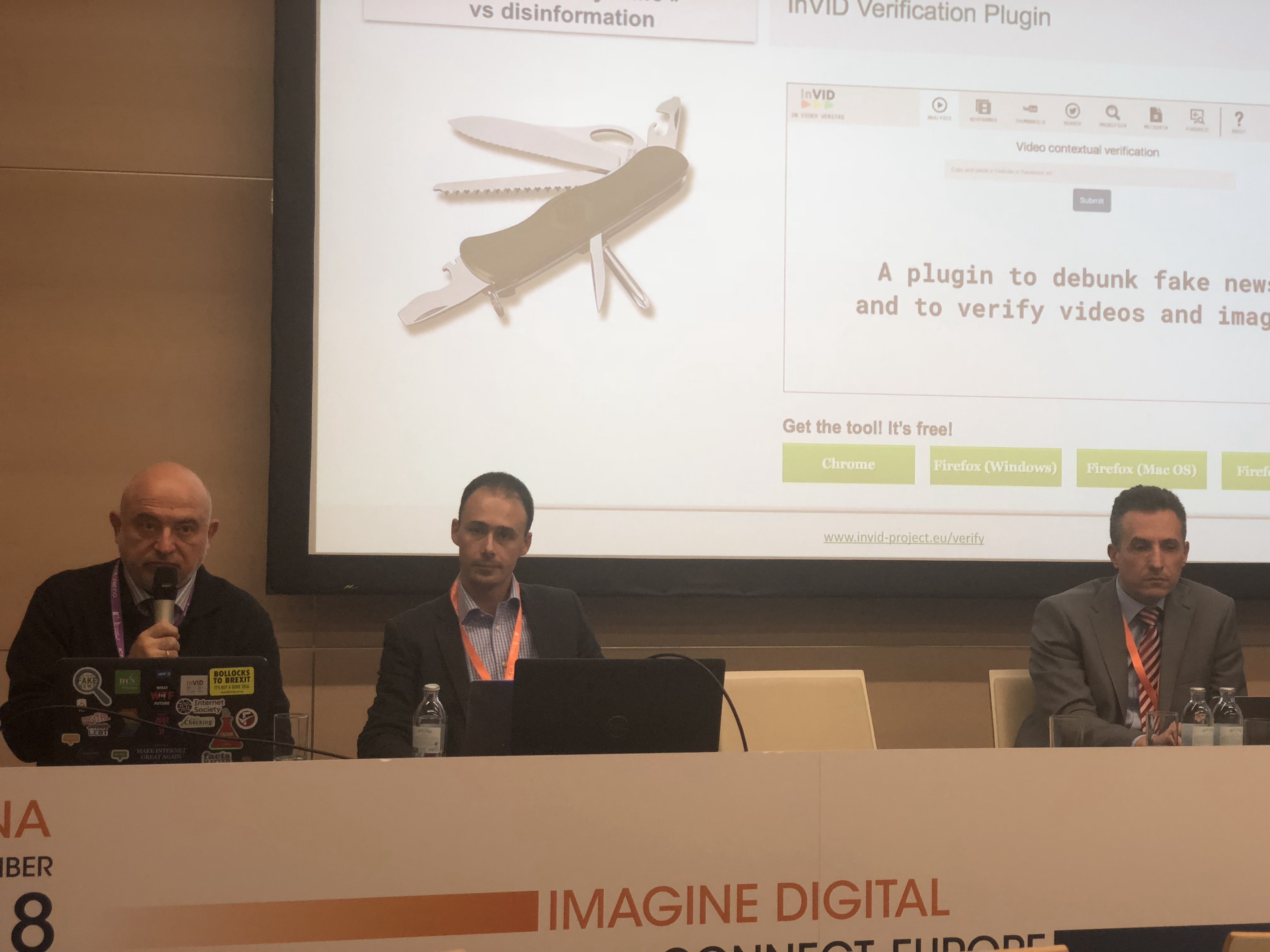
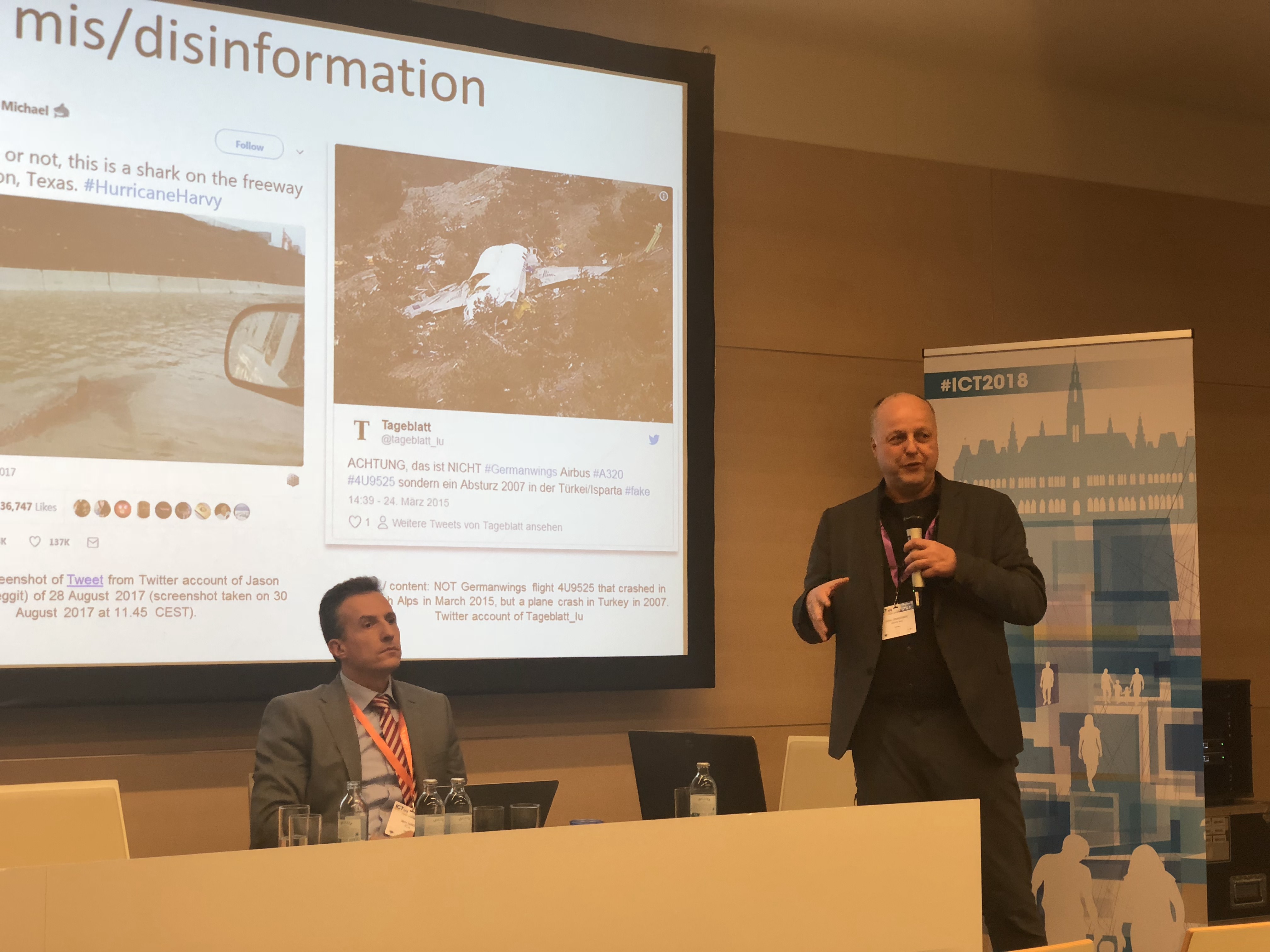
You must be logged in to post a comment.